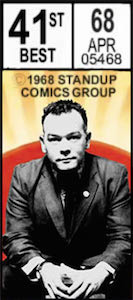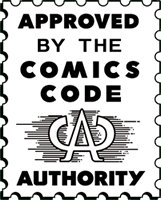Carpet Remnant WorldStewart Lee – Carpet Remnant World
Last night my lovely girlfriend took me to see Stewart Lee in his new stand up show Carpet Remnant World at the Leicester Square Theatre.
I’ve been a fan of Lee since I was very young, following his career from the days of Fist of Fun and This Morning with Richard not Judy, so was amply excited to be seeing him live for the first time.
Clearly Stewart Lee’s comedy stylings have made significant transitions over the years, abandoning his collaboration with Richard Herring (although they invariably still refer to each other in their solo stand up), securing himself as Britain’s most controversial comedian. This controversy isn’t a product of vulgar or politically incorrect material – although this does form some of his stand up – but his arrogant, self-promoting comedic style.
Lee has always come across as a very self-assured comedian. His material consistently displays a weight of intellect that he is clearly proud of whilst often dealing offensive blows to rival ‘lesser’ comedians. Despite seeming pompous and proud on stage, his satirical japery always seemed artificial, like an act.
I’m sure he is proud that his sets promote a level of intelligence and an awareness of current affairs; I’m certain that he does indeed feel that his comedy manages to transcend the ‘low brow’ comedy of some commercial stand ups. Lee has long been the darling of the fringe comedy scene but, importantly, he never genuinely appeared to believe his own hype. Until now….
Carpet Remnant World described in three words: Elitist. Offensive. Laboured.
But aren’t these also three particularly apt words to describe how Stewart Lee’s act has always appeared? They are indeed, it’s just that in his most recent show they no longer seem like elements of an act. Instead, they are so fervently present that they create a show that above all doesn’t work but worse still portrays a comedian that has a genuine disdain for his audience.
Let’s dissect:
1. Elitist: As described above, Stewart Lee has long promoted
his work as an antidote to commercial stand up and observational comedy. He
often demonstrates that his style of comedy is superior to others, that he is
some kind of comedic anti-hero destroying the established regime in favour of
a comic style with a greater depth of intelligence and socio-political reference
beyond the grasp of the common man.
This is true, to an extent. His comedy is certainly more challenging than a lot of comedians on the circuit currently. Unequivocally, there is a subtlety, an ambiguity to his stand up lending itself to a more ambivalent, thought-provoking show. It’s just that in Carpet Remnant World it seems that this has somewhat got to the head of Stewart Lee.
He is incessantly snobby about alternative forms of comedy – in his eyes, lesser forms – such as commercially celebrated observational comic acts like Peter Kay and Russell Howard, rather championing his own ‘high brow’ comedy intellectualism to the point of narcissism.
Interestingly though, despite his constant criticism and perpetual self-aggrandisement, the biggest and most consistent laughs of the night came from a repeated impression of Scooby Doo. How does that irony sit with you Mr Lee?
Moreover, Stewart Lee seems genuinely bitter about winning two British Comedy Awards (for Best Male Television Comic and Best Comedy Entertainment Program), driving him to attack those that he considers beneath him intellectually. Not only is this an ungrateful slap in the face of the panel who selected him (including comedic actor and director Reece Shearsmith and the commissioning editors for Sky, Dave and Comedy Central, to name but a few) but in his outbursts he further condemns the fan base he has developed as a result of his BBC Comedy Vehicle. I appreciate that he does not seek commercial success, rather he would prefer to comfortably sit on the fringe with his comedy morals intact, but how can you publicly criticise anyone that has shown you support without any sense of gratitude.
In an interview with the Guardian’s Emine Saner, Lee was asked whether he was at all jealous of millionaire comedians like Michael McIntyre. Here is his response –
“Not really. I wouldn’t want that level of recognition. It’s quite difficult as a comic if you’re that famous to know whether people are laughing at you or whether they’re just excited about seeing someone famous in a football stadium. It’s hard to go badly under those circumstances, and going badly is a big part of what I do”.
Perhaps this explains why he appears to have such a problem with the recognition he has received of late. There is a simple solution though: don’t do a comedy show as part of a primetime BBC schedule.
If you are so profoundly opposed to any sign of commercial success then ensure that you remain in relative obscurity, by playing only to low level crowds up and down the country. No Comedy Vehicle = no awards.
2. Offensive. Again as discussed above, Stewart Lee is known
for his offensive attacks, not just against rival comedians but his audience
also. Readily he delves into a seemingly ill-prepared joke which insults a local
stereotype of the location he is playing in. For example, in Stand Up Comedian,
filmed in Glasgow, he regularly insults the Scottish with a combination of regional
stereotypical opinion and an attack on Scottish heritage. Yet, Lee always had
the wit to carry it off in a way that reveals its artifice. The jokes are not
needlessly offensive, supported by a degree of intellect and a structural preparation
that engages the audience, allowing them to see past the overt, explicit insults.
However, in Carpet Remnant World these insults are much more personal supporting the idea that the show is no longer an act. Throughout the set Lee repeatedly criticises people for not understanding certain jokes, implicitly labelling them as inferior for having less of an intellectual capacity.
He even sought to divide the room into sections, those that got his material and those that were simply there as a result of his new heralded, British Comedy Award, fame. These insults were not subtle, such as those witnessed in previous shows. They were so frequent and delivered with such bitterness that they were beyond tacit, satirical digs.
At times the show had the impression of a witch hunt, scanning the audience for people who weren’t laughing as to belittle their intelligence, to the point of discomfort. I genuinely believe that there were some people in the room who laughed defensively, who smiled along so as to gain the approval of an elitist comic. This then has interesting implications on Lee’s aforementioned response – “It’s quite difficult as a comic if you’re that famous to know whether people are laughing at you or whether they’re just excited about seeing someone famous in a football stadium” ….. or laughing out of fear of embarrassment.
As observed above, Lee was also highly critical of his comic rivals, in particular the Russells, (Howard, Kane and Brand) and Michael McIntyre. He audaciously knocks their comedy successes making it clear that their brand of energetic observational comedy is inferior to his. With this is mind, who is Lee really chastising, the comedians or their fans? Inherently he is rebuking the fans for their poor taste in comedy – in his opinion.
As Guy Stagg of the Telegraph puts it, “But McIntyre is not the real object of this scorn. It is the people who find him funny. The people who are so unsophisticated that they laugh at observational comedy. Because comedy snobbery is just a vehicle for other, more poisonous forms of snobbery.” Shockingly, Lee has selected a quote from this damning article to advertise his show. This choice denotes an intensely obnoxious pride, one which is heavily misplaced.
Stewart Lee is often described as a left wing comedian, and with his regular dissection of the Tory party, David Cameron in particular, it is easy to see why this is.
He certainly appears to align himself with the left, yet his style of comedy is inescapably right wing. It is not inclusive, it is very much elitist, seeking to undermine those that don’t fit in with his intellectual ideals. Once again I am amazed that he so comfortably seeks to repel his fans who have dispensed with time and money to see his show. I know it’s not very anti-establishment but he should certainly feel privileged.
3. Laboured. Stewart Lee’s material has often seemed very laboured,
full of hesitation, repetition and self-reference. This has always been part
of its charm though, as you see how disparate thematic material is eloquently
drawn together by the end of the show. His delivery is slow paced, with recurring
repetition for emphasis, especially of particularly important thematic references.
Yet, in Carpet Remnant World Lee’s jokes are far too laboured.
His hesitation is such that it damages the fluidity of the show, but worse still there is simply not enough material, a fact he happily reiterates throughout the night.
Lee constantly refers to the fact that he hasn’t had time, nor the experiences to create an interesting comedy set, instead spending the last year looking after his 4 year old son and driving around the North Circular. I gather this is supposed to be subversive whilst preparing the way to eventually disprove this statement. However, he is not able to successfully achieve this as his initial statement is quite true; there is not enough material in the show. As such, he relies too heavily on repetition, which only serves to damage the quality jokes he does have; a prime example of this is the Scooby Doo based ‘jungle canyon rope bridge’ skit, which started on a hilarious high but unfortunately ended disastrously as it was continuously redelivered in needless iterations.
I fully understand the set’s closing metaphor too, which seeks to unite Stewart Lee’s meandering themes into a final conclusion with the show’s supposedly ironic title.
He compares his set to the characteristics of a Carpet Remnant World, of taking snippets of ragbag material and combining them with a sensitivity and artistry that somehow manages to create a satisfying whole. But it didn’t…. It really didn’t. His set did not come together as a satisfying whole, as he promised early in the show. Alternating sections seemed disparate at best, and a typical Lee-esque cohesion was never really achieved, leaving the audience feeling somewhat lost.
By now Lee devotees out there may well be thinking that I’m the Russell Howard loving, comedy philistine that he so fervently seeks to alienate in his show. Patently that is not the case though. The problem isn’t that I didn’t ‘get’ his jokes. It wasn’t that they were above my head. I fully understand his side swipe at lower forms of comedy.
His reference to Boyle’s law, his retelling of a joke in French, his attack on those comedians that end a set with a solemn personal story – clearly references to Frankie Boyle, Eddie Izzard and Richard Herring respectively. And I in fact share his disliking of Michael McIntyre’s and Russell Howard’s particular brands of comedy. He just does it in such a way that is far too explicitly offensive, only serving to insult the audience members that may well enjoy them.
To end this rant I will refer to one last joke from Stewart Lee’s set, one which I feel entirely encapsulates what was wrong with it. Halfway through the show he criticised Ricky Gervais for becoming as arrogant and offensive a person in actuality as his act entailed. This was the bitterest irony of the night, completely highlighting that he himself has undergone a similar process. His set was clearly no longer an act; there was patently a genuine dislike for his audience, combined with a pretentious feeling of superiority.
Stewart Lee. Elitist, offensive, laboured. Oh and hypocritical, mustn’t forget that.

